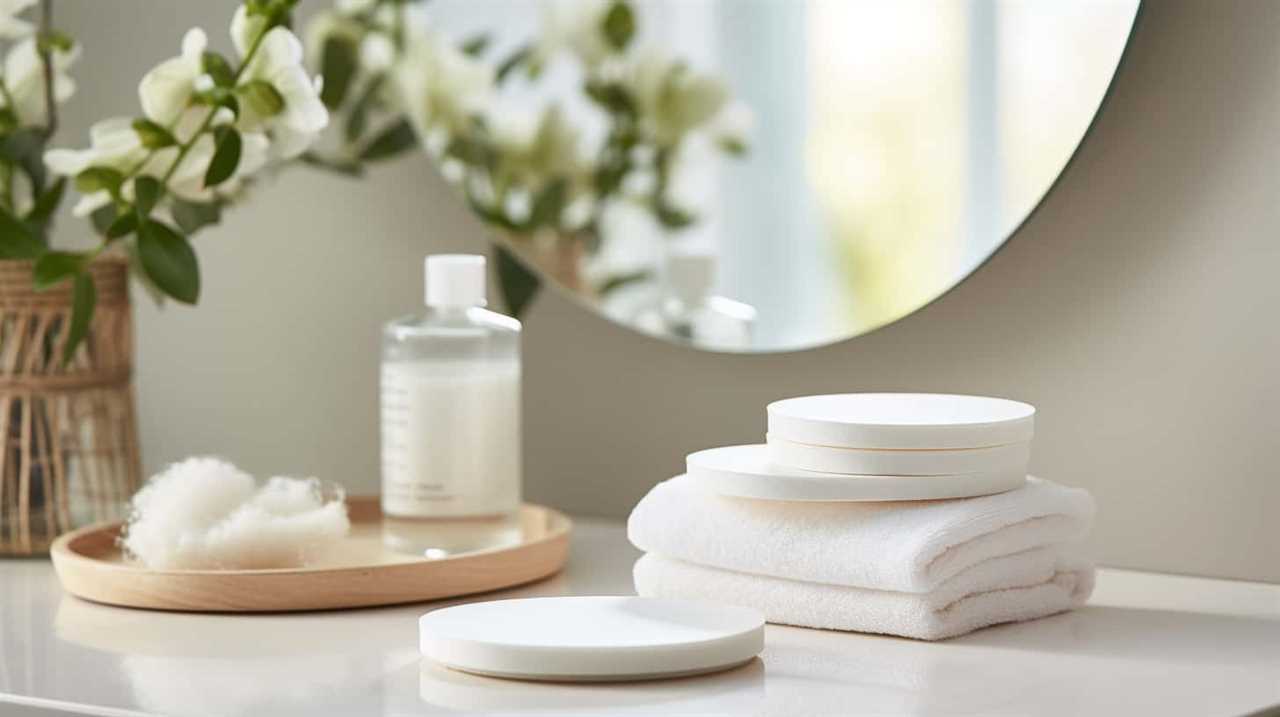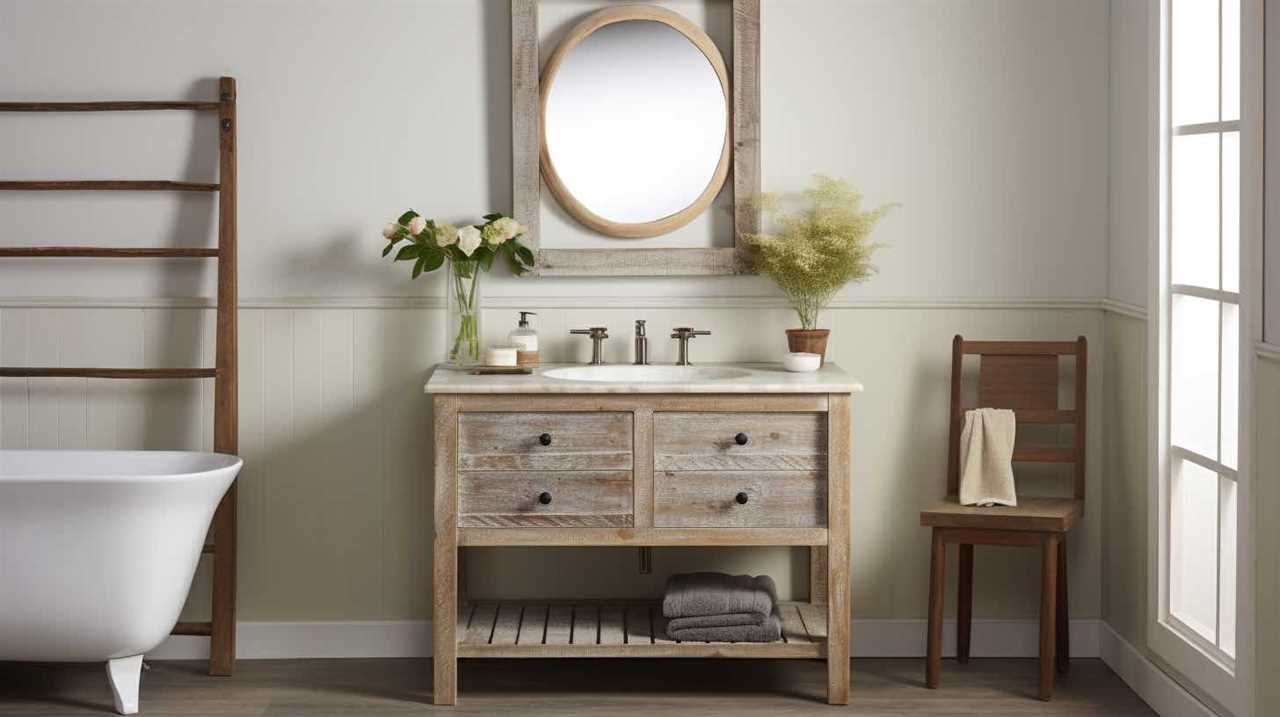Have you ever walked into your bathroom and been met with the distinct odor of urine? We understand how annoying and unpleasant it can be.
But fear not, because in this article, we will delve into the reasons behind this issue and provide you with practical solutions. From poor ventilation to infrequent cleaning, we will explore all the possible culprits and offer expert advice on how to eliminate the odor for good.
So, let’s get started on achieving a fresh and clean bathroom environment!
Key Takeaways
- Poor ventilation and air circulation can contribute to a urine smell in the bathroom.
- Infrequent cleaning and maintenance allow bacteria and urine residue to accumulate, leading to odors.
- Urine splash and spillage can result in a lingering urine smell if not properly cleaned.
- Issues with the toilet seal or wax ring can cause toilet leakage and urine accumulation, creating a persistent urine odor.
Poor Ventilation
Poor ventilation can contribute to the strong smell of urine in our bathroom. One possible cause is the lack of windows, which prevents fresh air from entering the space and allows odors to linger.

Another factor could be improper fan placement. If the fan isn’t positioned correctly, it may not effectively remove the stale air and odors, leading to the persistence of the urine smell.
To tackle this issue, it’s crucial to ensure proper ventilation in the bathroom. Installing a window or using an exhaust fan can help circulate the air and eliminate unpleasant odors.
Regular cleaning and disinfection of the bathroom, along with proper maintenance of the ventilation system, will also aid in keeping the space fresh and odor-free.
Infrequent Cleaning
Is it possible that we’re neglecting regular cleaning, contributing to the persistent urine smell in our bathroom?

It’s crucial to maintain a clean bathroom to eliminate unpleasant odors caused by urine. Infrequent cleaning allows bacteria and urine residue to accumulate, resulting in a foul smell.
To combat this issue, it’s essential to establish a regular cleaning routine. Use cleaning products specifically designed for bathrooms, such as disinfectants and toilet bowl cleaners, to effectively remove urine stains and odors.
Incorporating proper hygiene practices, such as wiping down surfaces, cleaning the toilet bowl, and mopping the floor, will prevent the buildup of bacteria and urine residue.
Urine Splash and Spillage
Continuing our discussion on maintaining a clean bathroom, one common factor contributing to the persistent urine smell is urine splash and spillage. This occurs when urine comes into contact with surfaces outside the toilet bowl, such as the floor, walls, or even the seat. To effectively address this issue, it’s important to implement proper hygiene practices and use suitable cleaning solutions.

Here are four key steps to tackle urine splash and spillage:
- Aim carefully: Encouraging proper aim can significantly reduce the chances of splash and spillage.
- Use a toilet seat cover: Placing a disposable toilet seat cover can help contain any potential splashes and prevent them from spreading.
- Wipe regularly: Regularly wiping down the toilet seat, walls, and floor with an appropriate cleaning solution can eliminate any urine residue.
- Consider a splash guard: Installing a splash guard around the toilet bowl can provide an added layer of protection against urine splatter.
Toilet Seal or Wax Ring Issues
We found that a common cause of urine smell in the bathroom is a faulty toilet seal or wax ring. When the seal or wax ring is damaged or improperly installed, it can lead to toilet leakage. This leakage allows urine to seep out and accumulate around the base of the toilet, resulting in a persistent smell.
If you notice an unpleasant odor in your bathroom, it’s essential to check the condition of the toilet seal or wax ring. If you suspect a problem, it’s best to seek professional help to replace the seal or ring and ensure it’s correctly installed. By addressing this issue, you can eliminate the source of the smell and create a fresh and odor-free bathroom environment.
Now, let’s move on to discussing the next potential cause of bathroom odors: bacterial growth and mildew.

Bacterial Growth and Mildew
One common cause of bathroom odors is the presence of bacterial growth and mildew. These unpleasant smells can persist even after cleaning the toilet.
To prevent the growth of bacteria and mildew in your bathroom, follow these cleaning techniques:
- Regularly clean and disinfect the toilet bowl, seat, and surrounding areas using a bathroom cleaner that contains bleach or an antibacterial agent. Pay special attention to areas where moisture tends to accumulate, such as the base of the toilet and under the rim.
- Use a mold prevention spray or solution on shower curtains, tiles, grout, and other surfaces prone to mildew growth. Scrub away any visible mold or mildew using a brush or sponge.
- Ensure proper ventilation in your bathroom by using an exhaust fan or opening a window. This helps to reduce humidity levels and prevent mold and mildew growth.
- Dry bathroom surfaces thoroughly after use, especially shower stalls and bathtub areas, to prevent moisture buildup.
Frequently Asked Questions
How Can I Prevent My Bathroom From Smelling Like Urine if Poor Ventilation Is Not the Issue?
To prevent urine odor in the bathroom, we can try using various cleaning techniques. Scrubbing the toilet regularly, using a disinfectant, and cleaning the floors can help eliminate the smell and maintain a fresh environment.
Are There Any Natural Remedies to Help Eliminate Urine Odor in the Bathroom?
Looking to banish that pesky urine odor from your bathroom? We’ve got you covered! Discover natural remedies and DIY solutions to eliminate that smell and keep your bathroom fresh and clean. Say goodbye to unpleasant odors!

What Are Some Common Signs of Toilet Seal or Wax Ring Issues That May Contribute to Urine Odors?
Toilet seal and wax ring issues can contribute to urine odors in the bathroom. Signs include water leakage, visible damage, and foul smells. Regular inspection, prevention measures, and proper cleaning with natural remedies or cleaning products can help prevent bacterial growth and mildew.
Can Using a Different Type of Cleaning Product Help Reduce Urine Splash and Spillage in the Bathroom?
Using enzymatic cleaners can minimize urine splash and spillage in the bathroom. We switched to one and noticed a significant reduction in odor. It’s worth trying alternative cleaning methods for a fresher-smelling bathroom.
Are There Any Health Risks Associated With Prolonged Exposure to Bacterial Growth and Mildew in a Bathroom That Smells Like Urine?
Health risks associated with prolonged exposure to bacterial growth and mildew in a bathroom that smells like urine include respiratory issues and allergic reactions. Using effective cleaning solutions can help eliminate these risks and maintain a healthy environment.
Conclusion
So, if you’ve ever wondered why your bathroom smells like urine, there are a few possible reasons. Poor ventilation, infrequent cleaning, urine splash and spillage, toilet seal or wax ring issues, and bacterial growth and mildew can all contribute to the unpleasant odor.

But fear not, there are solutions to combat these issues. By improving ventilation, regularly cleaning your bathroom, fixing any toilet seal or wax ring problems, and using appropriate cleaning products, you can ensure a fresh and odor-free bathroom experience.
Don’t let the stench linger any longer!









